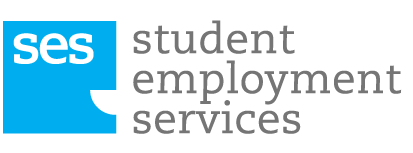Student Placement Guide
It’s that time of year for second-year students to start looking for their placement year.
Industrial Placements are a fantastic way to gain real-world experience in your chosen field, boost your CV, make valuable industry connections, and develop key skills to help you stand out when applying for graduate roles.
If you’re searching for placement opportunities, this guide provides insights and a helping hand to support you through the process, so you’re set up for success.
🕒 Start applying early for placements
Many organisations start advertising placement roles as early as September, so the start of your second year is the perfect time to begin your search. Demand for placements is high, so getting in early is essential.
Meanwhile, you will have companies advertise at different points throughout the academic year. So keep an eye out, you might discover fantastic opportunities you’d otherwise miss.
Reminder: Don’t leave applying until the last minute.
Raptor Student Employability Data Study 2022
📅 Balancing Your Placement Search with Studies
Juggling applications and uni assignments can feel overwhelming. Set aside dedicated time, like a weekend or an evening to research roles and draft applications. Planning ahead will make the process more manageable and less stressful.
💭 Keep an open mind when searching
While larger companies are appealing, competition can be fierce. Don’t overlook SMEs as they often offer exciting projects, the chance to take on more responsibilities, and to make a real impact from day one.
Also, stay open to different roles that could still help you build relevant skills. For example, if you’re interested in HR but find it competitive, consider roles that include HR-related responsibilities. They’re a great way to gain exposure and experience and you never know where an opportunity like that might lead.
However, focus on applying for placements you can genuinely see yourself enjoying and learning from. It’ll make the whole experience more rewarding and worthwhile.
Even if you aren’t able to secure a placement, consider keeping internships in mind as an alternative way to gain valuable experience.
📍 Think About Location Before You Apply
Before applying for a placement, take time to consider the location. Some roles may require you to relocate, which can mean extra costs, arranging accommodation, and adjusting to a new area away from family and friends. Research the area, salary, and living costs in advance to decide whether moving is realistic for you.
✏️ Professional Etiquette & Feedback
Write professionally: Treat emails and applications seriously and to avoid ‘Gen Z texting style’ and keep it clear and polite.
Follow up: If you haven’t heard back from the status of your application or interview, send a gentle reminder to check in. Hiring managers/recruiters are often inundated with applications and overall process.
Use feedback constructively: Interview/application feedback is a chance to improve. Don’t take it personally if you haven’t been successful; use it to strengthen your next application.
Need help writing your application? or preparing for interviews? Check out our Careers Guide for tips!
🗂️ Before Starting Your Placement
Sort all paperwork early. Make sure contracts and forms are completed to avoid delays.
Stay in touch and be proactive. Keep communication open with your employer and/or recruiter. Ask questions and clarify if there’s anything you should prepare before starting. If possible, reach out to current interns at the company. They can share valuable insights about what to expect, and what to prepare for.
Plan ahead and get to know your new area. If relocating, organise your accommodation in advance as it can take time.
👉 Once you start your placement, remember to stay professional, make a great first impression, and take every opportunity to learn and contribute – it all counts!
Read Kieron’s Placement Year Experience 🚀
-
My reason for doing a placement year was to pick up valuable experience to improve my chances of getting a good graduate job.
Overall my placement was enjoyable, I was lucky to be able to manage my own project where I would look after a small team helping build a new product. This included designing, procuring parts, marketing, price strategies, meeting suppliers etc.
My advice to students of thinking of doing a Student Placement is to get stuck in as much as possible. Don’t be shy and don’t be afraid to voice an opinion, If lacking work make sure your constantly asking for more and more as you are there to learn and gain experience.
Project Planner Placement Student @ Engineering Company



